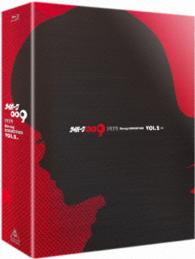- ホーム
- > 洋書
- > ドイツ書
- > Humanities, Arts & Music
- > Linguistics
- > other languages
Description
(Short description)
This volume presents the documentation and description of an endangered variety of the Gorani language as spoken in Zarda, a village located near Sar Pol-e Zahab and Kerend in Kermanshah province, western Iran. The volume contains background information about the village and society, eight texts with English translations, an interlinear morphemic glossed text, and a grammatical description and lexicon based on the material in the texts. Audio recordings of the texts are included on a CD.
(Text)
This volume presents the documentation and description of an endangered variety of Gorani as spoken in Zarda, a village located near Sar Pol-e Zahab and Kerend in Kermanshah province of western Iran. The contents of this volume-texts, translations, a grammatical description, lexicon, an interlinear glossed text, and audio recordings on a CD-provide foundational material for research in linguistics, Iranian studies, anthropology, sociology, and oral tradition studies. Along with an earlier volume (on Gorani of Gawraju), this book can serve as a valuable resource for multilingual education as well as language maintenance and revitalization.
The variety of Gorani from Zarda is genetically classified as North_West Iranian within the Indo_European language family. For many centuries, Gorani had the prestigious role as the court and literary language of the Kurdish Ardalan rulers (14th to 19th centuries), and as the language of the sacred texts of the Ahl_e Haqq (also known as Yaresan). In modern times, Gorani varieties are undergoing sociolinguistic processes of shift and loss, and there are only a few speech enclaves remaining in this area of western Iran. In neighboring Iraq, several Gorani varieties are also found, including those commonly named as Macho, Hawrami, Shabaki, Bajelani, Kakayi, and Zangana.
The Zarda grammar and lexicon in this book treat many characteristic features of the Gorani group, including an oblique case marked on noun phrases and a complex system of verb agreement with aspects of ergative-absolutive patterning in past tense clauses. There are also noteworthy phonological features and processes, including the lenition of plosives.
The Zarda texts presented in this volume involve several themes, including some of distinct historical and social importance. Three of the texts consist of eyewitness accounts of events that took place towards the end of the Iran-Iraq War (1980-1988), when the small village of Zarda and the pilgrimage site of Baba Yadigar came under attack by the Iraqi military forces, and the civilian population was bombed with chemical gas. Other topics in the texts include descriptions of wildlife, local plant life, agriculture, and there are also several traditional narratives.







